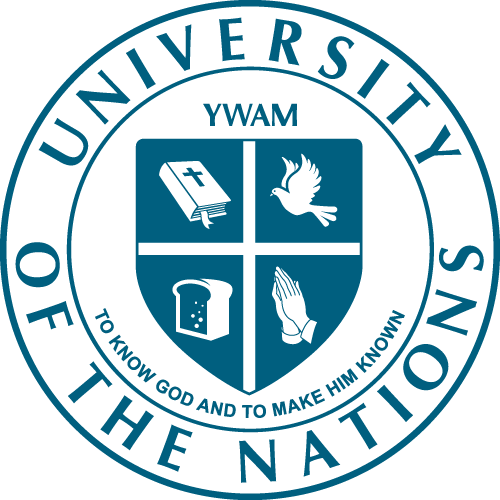In order for your DTS students to receive U of N credit for the DTS, each learning week of the DTS must be properly registered and be accompanied by the appropriate course registration fee.
- The purpose and basic curriculum of the DTS has been defined by the international leadership of YWAM and U of N. To ensure that the DTS stays on course with the vision, it is essential that DTS leaders keep the purpose statements in focus, that specific goals and objectives of each school support the fulfilment of the overall purpose statements and that the content be complete.
- The DTS must contain a minimum of 11 teaching content weeks, with a minimum of 12 teaching content hours per week for one language ( a minimum of 16 hours for a bi-lingual school) in addition to the other learning activities described in the document on “Full Learning Weeks“. The DTS must contain a minimum of 8 Field Assignment weeks. However, all leaders are encouraged to run a 24 week DTS course which will enable students to receive the maximum 24 credits allowed for a U of N DTS. This is based on the credit evaluation of one credit per “full learning week”.
- A ETED é uma escola de treinamento cristão em tempo integral. Ela é projetado de tal forma que os indivíduos são obrigados a se afastar de seus empregos e escola, etc., por um período de tempo específico e dar toda a sua atenção para serem treinados na ETED.
- Each week of the complete DTS course must be a “Full Learning Week” as described in the document entitled “Full Learning Weeks“. Three hours of intercession are required per week throughout all of the DTS course weeks.
- Regularly scheduled one-on-one meetings between staff and students are to be carried out for feedback, assessment & evaluation. Our goal is one such individual meeting a week. See “One on Ones in the DTS” document.
- A ETED deve conter um mínimo de 8 Field Assignment/Outreach weeks throughout the total course and is to be carried forth in accordance with the guidelines defined in the U of N Reference Guide documents entitled “YWAM/U of N Field Assignment-Outreach Policy and Procedure”. “Boas Práticas para a Fase Prática da ETED“, “Critérios Mínimos para os Obreiros da ETED“. The primary emphasis of the DTS/CDTS Outreach is to be evangelism, not only intercession or physical work and is to include a minimum of 30 hours per week of ministry activity serving people outside of the team. Ministry strategies are to come out of prayer. The majority of ministry activity is to involve connecting with people with the aim of facilitating them in becoming followers of Jesus. (evangelism) The Outreach in to include a minimum of 15 hours per week of other structured learning activities such as communication, team building, ministry debriefing, feedback, sharing of needs, prayer for individuals, ministry prep including at least 3 hours of intercession, and 3 times of worship as a team (God focused time) that is spread throughout each week of the Outreach. We should endeavor also to expose our students to the three aspects of the ministry calling of YWAM which includes Mercy Ministries. There should be a positive, cross-cultural evangelistic experience so that each one sees fruit. We want the students to see missions in action, and to like missions. As well, the Outreach weeks should be a conscious “putting into practice” of the teaching content throughout the DTS/CDTS. Outreach leaders should be constantly helping the students see how to apply the teaching to their lives and ministry. (i.e. How does the Father Heart of God apply in this outreach situation? What about the application of spiritual warfare, giving up rights, relationships, the Word etc.)
- Os Valores Fundamentais da JOCUM devem ser ensinados, modelados e integrados em sua ETED. Veja o documento intitulado “Os Valores Fundamentais de Jovens com uma Missão”.
- Sua ETED deve ter um ambiente de vida e aprendizado conforme descrito no Catálogo da UofN (na seção de informações gerais). A filosofia viver/aprender é um conceito de aprendizagem comunitária que acelera e aprofunda o processo educacional.
- - Obreiros e líderes treinados in character, calling, gifting, and ability are necessary to run a DTS effectively. Therefore, there is to be on-going DTS staff/leadership training at the local base level. DTS staff/leaders cannot create, nor lead, a quality DTS that meets international requirements without on-going equipping for the task. Therefore the training of the DTS school staff/leaders must be valued in such a way that DTS staff/leaders have the time in their schedule to be trained prior to and during the DTS. DTS staff/leaders should not be expected to fulfil time-consuming non-DTS roles on the base for several weeks before, nor during the DTS. (i.e. roles that compete with their equipping and ability to fulfil their responsibilities with the DTS.) note: ‘qualified’ assumes the local base leadership has set minimum standards for qualification. See the documents entitled “Preâmbulo dos Líderes Escolares da UofN”; “Características dos Líderes Escolares da UofN”; “Prestação de conta dos líderes escolares da UofN”; “Responsabilidades dos líderes escolares da UofN”; “Quem pode liderar uma escola da UofN?”; “Critérios Mínimos para os Obreiros da ETED ”.
- Professores qualificados, aqueles que representam e exemplificam os valores da JOCUM no ensino e na interação com os alunos, também são vitais para o processo de aprendizado dinâmico de uma ETED. Pelo menos alguns dos professores devem ser internacionais, de diferentes origens denominacionais e devem incluir mulheres.
- Orientação para JOCUM, seus valores, chamados e oportunidades ministeriais devem fazer parte de toda ETED. Os líderes/obreiros têm o privilégio e a responsabilidade de se envolver ativamente em vincular os alunos às missões por meio de uma variedade de meios com base nos interesses, dons, habilidades e chamados individuais únicos dos alunos. Queremos tornar mais fácil para as pessoas entrarem na JOCUM.
- Orientation to U of N and its future courses on the U of website, “uofn.edu“, should be carried out with students, enabling them to see the bigger picture of missions training available to them through the University. DTS/CDTS leaders/staff should make sure that all other students should have equal access to U of N course information.
- Uma Avaliação é necessária em cada ETED:
a. Avaliação do aluno: os critérios para avaliação do aluno devem ser claramente comunicados pela liderança da ETED aos alunos no início da ETED e/ou antes. No final da escola, cada aluno deve ser avaliado com base nos critérios estabelecidos anteriormente. O aluno recebe então uma nota 'S' por concluir satisfatoriamente a ETED ou uma nota 'U' por concluir insatisfatoriamente a ETED.
b. Avaliação da escola: a avaliação de cada ETED, tanto da Fase Teórica quanto da Prática, bem como da equipe/líderes, deve ser realizada no final de cada ETED pelos alunos e pelos obreiros/líderes. A liderança da base local é, em última instância, responsável pela qualidade de seu programa de ETED e pelos obreiros/líderes de ETED em sua localidade, incluindo o cumprimento de todos os requisitos internacionais básicos de JOCUM/UofN declarados neste documento, intitulado “Diretrizes para as Escolas de Treinamento e Discipulado da JOCUM/UofN”. Uma avaliação de cada escola ETED e obreiro/líder pelos alunos e obreiros/líderes dessa escola dará o feedback necessário à liderança da base em relação ao efeito de sua própria tomada de decisão, influenciando qualquer aspecto da ETED, para que ajustes podem ser feitos para garantir que o treinamento transformacional eficaz esteja ocorrendo na ETED em todos os locais.




